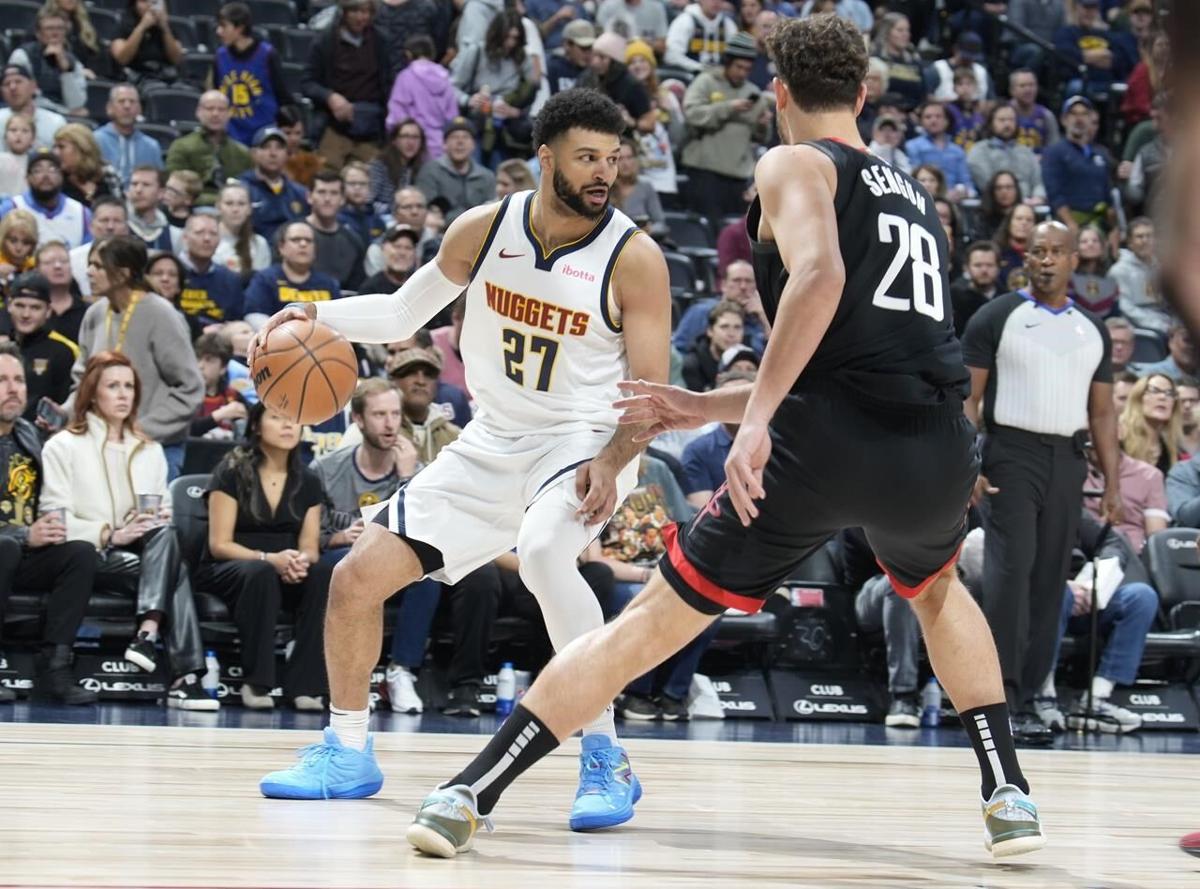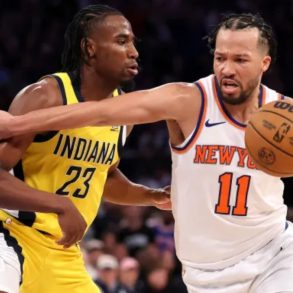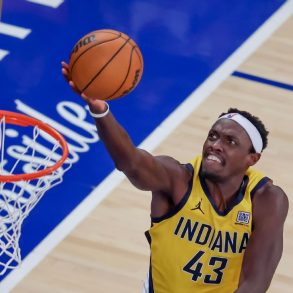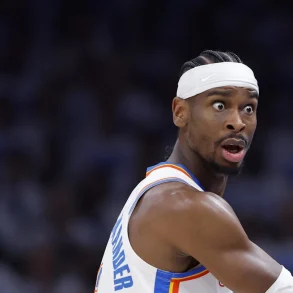Every Nuggets comeback needs a spark, and this one notably came without Nikola Jokic on the court. With 9:18 left in a game Denver trailed 100-90, Julian Strawther was knocked over away from the ball while Jamal Murray hit a corner 3-pointer.
The result: a flagrant foul, a free throw for Strawther, and a lob from Russell Westbrook to DeAndre Jordan, adding up to a six-point possession. Eventually, this led to an improbable and hard-fought 132-129 overtime victory over the Pelicans on Sunday night.
The Nuggets (15-11) have now won five games this season after trailing by double digits in the fourth quarter, with this game being no exception.
They were down by 17 points late in the third quarter, but Jokic came alive in the final stretch. Murray capped his 27-point, eight-rebound performance with a clutch shot on one leg with eight seconds remaining to send the game into overtime.
Closing lineup adjustment
Head coach Michael Malone learned from a previous mistake. In Thursday’s game in Portland, the Trail Blazers used a timeout to set up their final shot after Jokic had tied the game with 15 seconds left.
The defensive lineup for that possession consisted of Murray, Westbrook, Michael Porter Jr., Aaron Gordon, and Jokic, but the result was an easy layup by Anfernee Simons at the buzzer after a lack of defensive help.
This time, with eight seconds remaining in New Orleans, Murray’s 20-footer tied the game at 119. The Pelicans called a timeout.
For this defensive possession, Malone deployed Westbrook, Christian Braun, Peyton Watson, Gordon, and Jokic.
Porter had been removed from the closing lineup after struggling on both ends, while Braun and Watson, two promising young perimeter defenders, were brought in. They, along with Westbrook, forced C.J. McCollum into a tough shot at the buzzer.
Malone stuck with Westbrook and Braun during overtime, with Porter remaining on the bench. Braun played nearly 39 minutes, the second-most on the team. Murray also contributed with three steals, including a crucial one in the final minute of overtime.
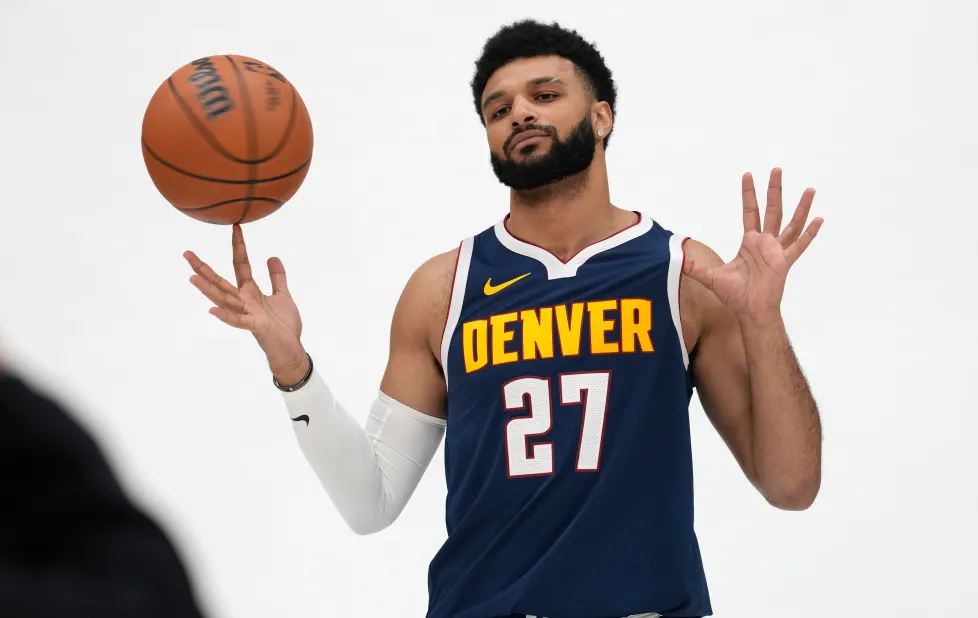
Jokic’s slow start
There’s a reasonable argument that over-relying on Jokic could be detrimental to the Nuggets’ long-term success. The concern is that too many minutes, touches, and stats in December could wear him down.
However, even if this viewpoint is valid, Jokic’s performance on Sunday didn’t meet the expected level of aggressiveness, particularly against the Pelicans’ centers.
It wasn’t until late in the game that Jokic made his presence felt. Despite finishing with 27 points, 13 rebounds, and 10 assists, he had been passive against Yves Missi and Daniel Theis earlier in the game.
He missed a couple of opportunities at the rim in the scoreless first quarter and, combined in the second and third quarters, only attempted two of his seven shots from inside 10 feet. The other five were jumpers from 13 feet or more. He also took just five free throws.
Defensively, Jokic was part of the problem as the Pelicans outscored the Nuggets 14-6 in the paint during the third quarter. The Pelicans extended their lead to 91-74 at the 1:32 mark, taking advantage of the Nuggets’ perimeter defense and Jokic’s absence in the paint.
Despite this slow start, Jokic’s commitment to posting up in the final stages was crucial for Denver’s comeback. He scored seven points in a two-minute stretch to help the Nuggets regain the lead, and he added six more points to set the Pelicans back at the start of overtime.
Defensive lapses and transition issues
The Nuggets had little reason to appear fatigued in New Orleans, given their recent schedule with only three games in the last 13 days. However, their transition defense remained a significant concern.
Entering the game, the Nuggets had been allowing 18.2 fast-break points per game, the fourth-worst in the NBA. By halftime, the Pelicans had already scored 15 fast-break points. The problem wasn’t just turnovers—Denver committed 22 throughout the game—but players often hesitated on 50-50 balls.
At one point in the second quarter, Porter had a chance to rebound his own missed 3-pointer, but as the long rebound bounced toward him, he turned and jogged toward the defensive end. An opponent seized the opportunity and raced past him for an easy layup.
The Pelicans finished the game with 23 transition points and shot 56% from 2-point range. Though the Nuggets escaped with a win, their defensive flaws continue to be a concern.



